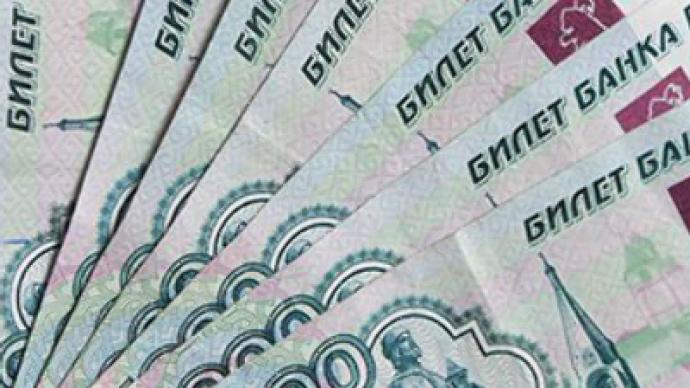Rouble a spectator in currency drive to the bottom

With Finance ministers and heads of the Central banks calling for a halt to the currency wars, experts say commodity rich Russia remains a safe harbor.
One issue is set to dominate the annual meetings of the IMF and World Bank in Washington this weekend – the currency wars, which threaten to undermine all the work that's been done to restart the global economy.
The new weapon is not bombs or mines – it’s the economic equivalent of napalm, with critics saying it could lay waste to the global economy. Countries lower their currencies to gain competitive advantage, but kill global trade in the process. And everybody can’t devaluate their currencies all at once, say Kenneth Rogoff, Professor of Economics at Harvard University.
“There’s no question that global demand is low. There’s not enough room for everybody to grow their way by exporting. That’s the norm – when you have a financial crisis, in a region or in a country, your exchange rate goes down. That’s one of the things that helps heal you. Now not everyone can grow that way – the whole world can't.”
Governments are making matters worse by printing cash and slashing the worth of paper money. China and the U.S. are the leaders in this currency war, with the US having announced a new round of money printing and driven down its currency this way.
Chinese Premier Wen Jiaboa has warned that pressure to revalue the Yuan would result in social instability and economic disruption in China.
Russia is a spectator in this war. Its exports of gas and oil are priced in dollars while the rouble tends to follow the oil price. This makes the rouble a much safer currency, according to Aleksey Zabotkin, head of investment strategy at VTB Capital.
As the US and the EU push for a yuan revaluation the risk for the coming year is that currency wars will slow global growth.
“Russian exports aren’t dominated by tradable goods, tradable manufactured goods – they are dominated by commodities where the relative competitive advantage of Russia is there regardless of the exchange rate. So, in this respect the absolute exchange rate is of a lesser significance for Russia than to the countries like China.”












